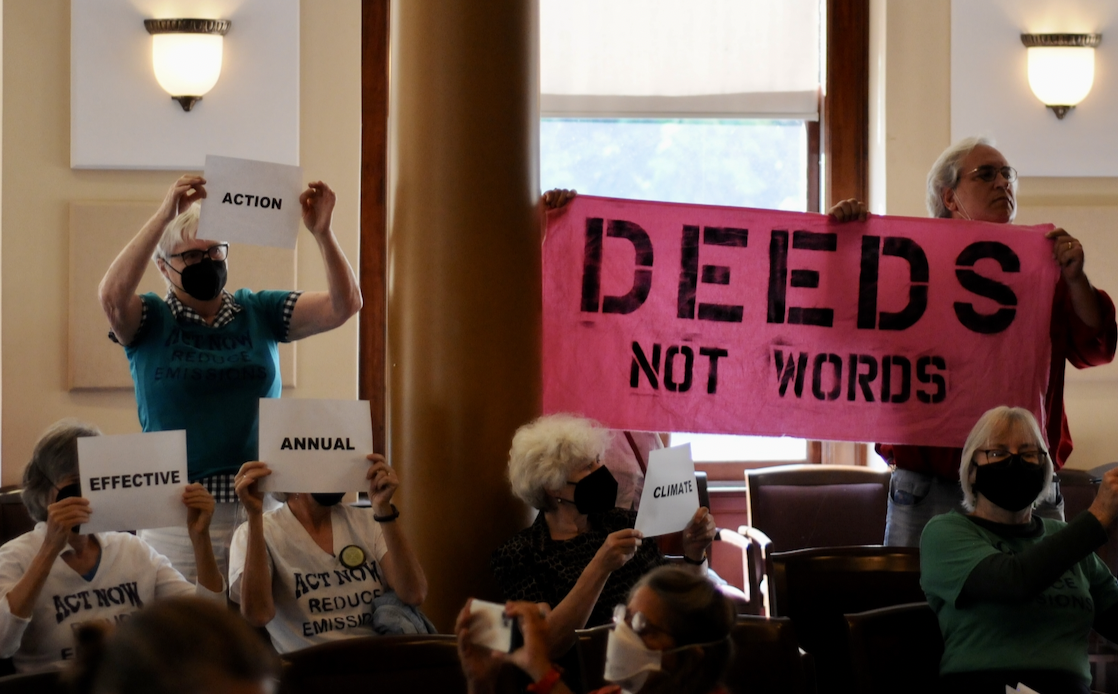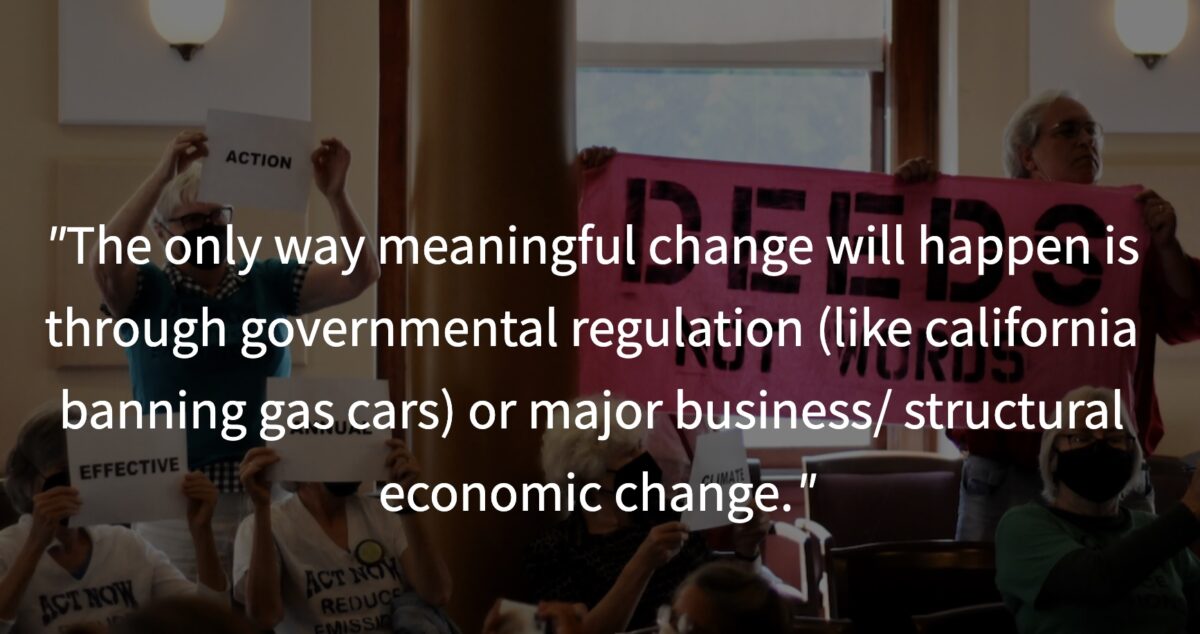
“The only way meaningful change will happen is through governmental regulation (like california banning gas cars) or major business/ structural economic change.“
Welcome to the Comment of the Week, where we highlight good comments in order to inspire more of them. You can help us choose our next one by replying with “comment of the week” to any comment you think deserves recognition.
Our Activists want ‘Deeds not words’ as Portland adopts climate work plan post garnered a curious thread of comments. Several of the first comments to arrive criticized the age of the activists—as if global warming is a crisis about which only those under a certain age have the right to an opinion. (I eventually removed some comments for being ageist.)
Another chunk of comments seemed almost to celebrate the demise of downtown. Or framed another way, to celebrate the age of decentralization that working from home is maybe ushering in.
It was toward that second batch of comments that commenter “was carless” took aim with a strongly-worded rebuttal.
BikePortland doesn’t fact-check comments, but we also don’t want to amplify false information. So I did some cursory fact-checking of the “was carless” comment using the 2022 International Panel for Climate Change report, the EPA GHG emissions by sector information, and Carbon Brief’s summary of the IPCC report. The comment was consistent with what I read from those sources.
(“was carless” might be incorrect about personal transportation being 25% of US emissions, my reading of the EPA reports is that it is less than that, possibly as low as 13%. That only strengthens “was carless’s” argument.)
Here’s what “was carless” wrote:
Greenhouse gas emissions in the US are overwhelmingly NOT from the personal transport sector, which only comprises about 25% of emissions.
The rest of emissions [are] from from these sectors:
– electricity generation (so anyone posting on the internet or using web services is part of the problem)
– industrial emissions including resource extraction and steel/concrete production. Nothing you do will ever impact this
– heating and cooling buildings. Office buildings are 3-4 times more efficient than people working from home
– Air travel & international shipping
– Methane and co2 releases from agriculture
Almost every poster in this thread is tilting at windmills. Your personal co2 emissions from driving 15,000 miles a year in a 10 mpg pickup truck would be 15 tons annually.
Global emissions are at 36.3 billion tons. Your personal impact from driving is 2.75 x 10^-10.
Or 0.00000000275% of global emissions
if every Portlander stopped driving that would still only be 0.000062% of global emissions.
So we absolutely need to reduce our greenhouse emissions, but shaming people to avoid driving to ride bicycles in an unsafe environment is not the way. Claiming that all office work needs to be done at your personal home, which costs more energy to heat and cool than an office building also isnt the solution. And in fact, is a non solution to anyone living in a small or studio apartment or has children.
The only way meaningful change will happen is through governmental regulation (like california banning gas cars) or major business/ structural economic change. Ie, shutting down the coal power plants and installing wind, solar and city sized battery systems. Switching from fossil fuel to hydrogen or ammonia fuel for shipping and aviation. Etc.
Everything else is just a distraction and is the worst form of performative virtue signaling.
Thank you “was carless!”
“Was carless” left off an important point that “Soren” made in his GHG and Drunken Sailors “comment of the week” from four months ago. An out-sized share of our carbon footprint in Multnomah County (as in other wealthy cities) is “demand-side.” We consume a lot, so a significant portion on our GHG impact is not our direct GHG emission, but rather he GHG released in all the places around the world that produce what we consume.
You can read “was carless“and the whole thread, under the original article.




